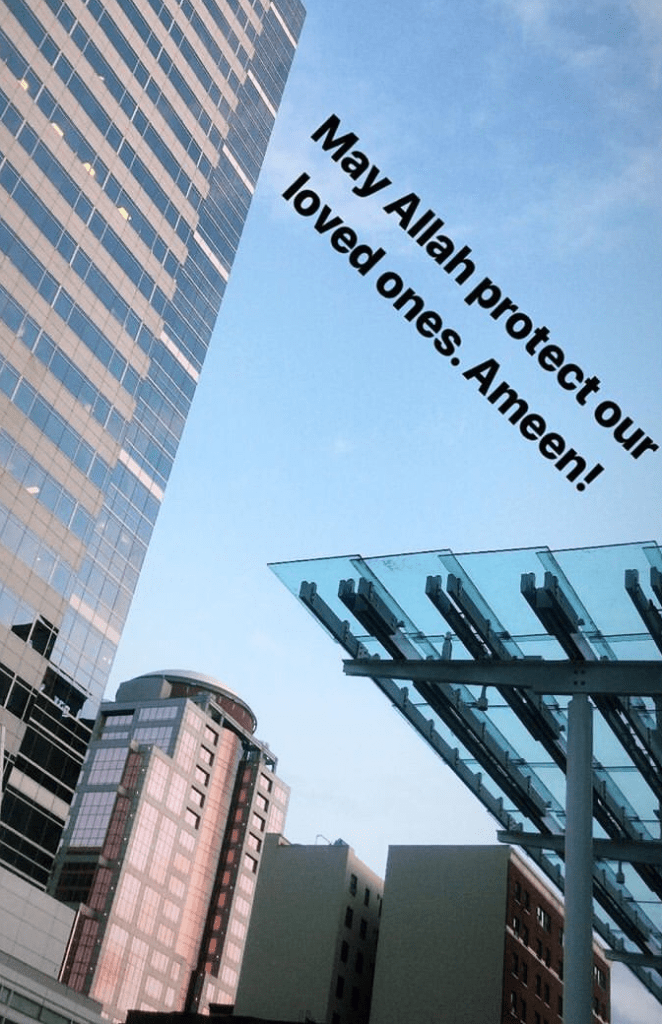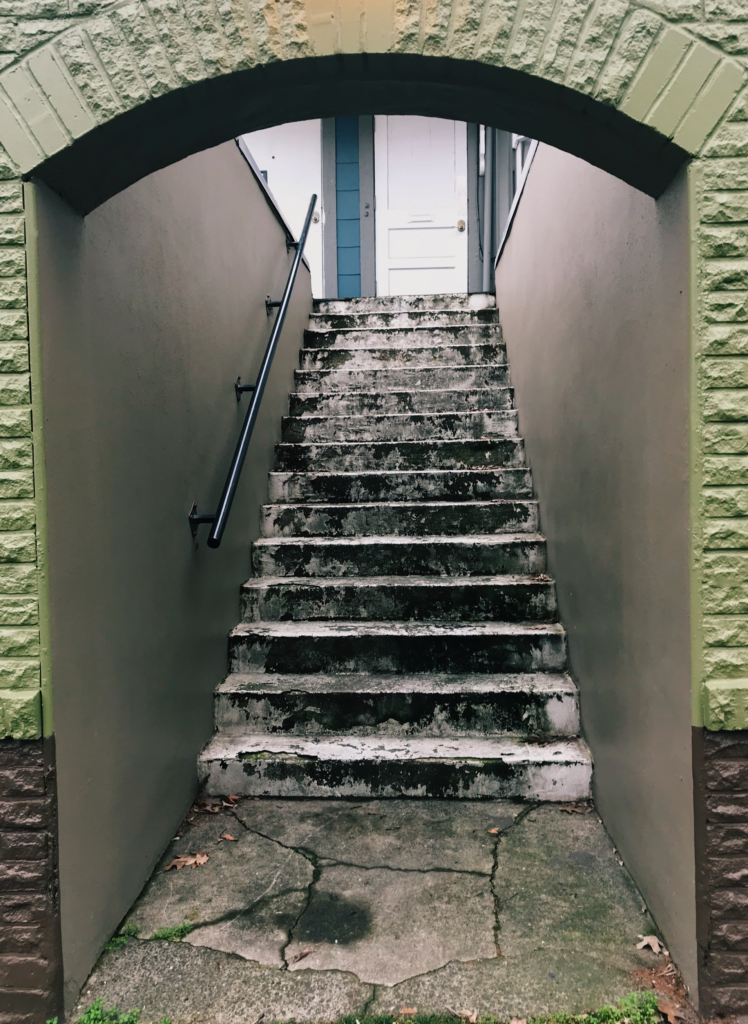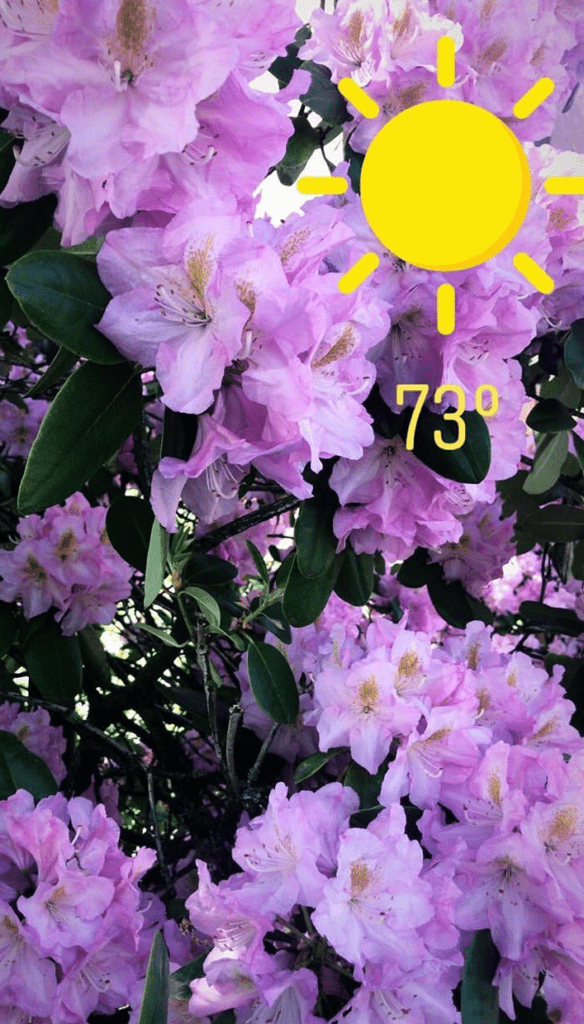In the middle of March 2018, my family got the news. My grandfather was heading back home from his trip to Somalia because of a leg injury. I did not think much of it because I was too busy focusing on graduate school.
In Islam, we are given a three-day window to visit the sick if we want the ultimate good deeds. I made the intention to visit him on the third day because I would not have any classes. However, I found out through my siblings that my grandfather’s injuries were not simple nor easy to operate on because of his health conditions.
“He has a history of stroke, he is currently dealing with Type 2 diabetes, and cholesterol issues,” my younger brother told me. I forgot about his diabetes and made the connection to why his leg injury wasn’t simple. I went to see him on the second day of him being admitted to the hospital. I felt queasy because this was the same hospital where my great-grandmother died when I was ten years old. The memories suddenly rushed in.
When I entered his room, I saw a wave of Somalis sitting and standing in his room—a mix of genders making supplication that my grandfather would heal from this. “Dembi aff,” they kept saying. “This is just a process to forgive him for his sins. He will soon heal with Allah’s will.” When I was younger, I would hear the term dembi aff many times, usually when I was sick. I can’t explain it, but it reassured me because, during a time of sickness, you feel defeated but knowing that it’s a process to cleanse you, helps you think positively.
Advance Directives
My siblings and I took turns visiting my grandfather at the hospital because my father needed to work. My younger brother, who just started his Ph.D. at the University of Texas – Austin, decided to fly out to Portland to help. We made a schedule and made sure that my grandfather was not left alone at the hospital. We did not trust the doctors and needed to be there to provide interpretation. My grandfather did not feel comfortable with someone who wasn’t family interpreting for him. He was cautious of the hospital staff and the health care system.
During my visit, I would make sure he was comfortable and tried my best to communicate with him, but it was hard. I had moments of running to the bathroom so I could cry. I discovered when I came back that the doctor was on his way to discuss the surgery my grandfather will be receiving. The doctor came in with another person, a woman who did not bother to introduce herself. The male physician introduced her instead. He was wearing a casual outfit, so you wouldn’t know he was a doctor. I thought at that moment maybe he doesn’t take us seriously, but I didn’t want to judge.
“He has gangrene, and his blood is only circulating at 30 percent throughout his body. Are you sure he was mobile before his trip?” the male doctor said. Before I entered the room, I remember my brother telling me that a nurse staff told him that a doctor would be visiting my grandfather to suggest what is next. He called my father because he was the first line of communication for my grandfather and the doctor. My dad looked frustrated when he got asked about mobility. He furiously responded, “Of course, he was walking every morning. If not morning, in the afternoon.” But the doctor did not believe it because of how badly my grandfather’s leg looked.
The air in the room felt humid, and it got worse as the doctor explained the surgery and the risks involved. Then, he asked my father, “do you have an advance directive.” My father had never heard of this term before, so he asked him to explain. The doctor rushed to explain and told him he would need someone to assist him with it but did not provide any resources on doing so.
We later discovered what it meant to have an advance directive, which is a legal document that focuses on preferences on what type of treatment and care a patient wants when they are not able to verbally communicate it.((Emanuel, L. L., Barry, M. J., Stoeckle, J. D., Ettelson, L. M., & Emanuel, E. J. (1991). Advance directives for medical care—a case for greater use. New England Journal of Medicine, 324(13), 889-895.)) I found it upsetting that no one from the hospital staff took the time to explain this. I felt that the health care system didn’t care, as long as they were getting paid. Furthermore, the distrust with the healthcare system in my family heightened.

Relationship with Healthcare
The healthcare system must focus on patient care because it helps improve the quality of life for patients. For the most part, building that relationship provides trust, which allows patients to feel safe and accepted.((Cooper, L. A., Roter, D. L., Johnson, R. L., Ford, D. E., Steinwachs, D. M., & Powe, N. R. (2003). Patient-centered communication, ratings of care, and concordance of patient and physician race. Annals of Internal Medicine, 139(11), 907-915.)) My grandfather had a typical relationship with his providers but told me that his favorite doctor was his physical therapist. I believe from his stories about his physical therapist that he valued him because he was able to help him with movements and never gave up on him. “He did not give me medicine, he worked with my muscles” is what he told me during my questionnaires.
My grandfather experienced life in Somalia during its stages of peace and dictatorship. He lived a comfortable life back home and did not believe he would be sick during his time in America. Like most immigrants and refugees, the transition from their home countries to America is not smooth. My grandfather was diagnosed with Type 2 diabetes at the age of 50 years old and did not understand how to navigate the healthcare system. He heavily relied on my father, his first child, to help him.
During his time in America, my grandfather always felt detached from medicine. He did not believe in it, because he wasn’t unhealthy back home in Somalia. He connected his lifestyle in Somalia to America, which I did not understand because of the number of stressors he dealt with in America was not the same as back home. However, I did not question him and asked what he wanted to see from his physicians.
“I want them to understand that I wasn’t always sick. I want them to know that I am Somali.” My grandfather was prideful of his identity but felt like the overall staff did not care. He asked for Somali food during his time at the hospital, and they did not allow it. He felt ignored because he did not have food accommodating his culture. I asked the nursing staff about it, and they allowed us to bring him food, but that was short-lived because the doctor did not agree with it. I never thought that food from one’s culture would provide the most significant comfort when healing.

Cultural Competency and Humility
Having Somali food provided my grandfather comfort because it allowed him to indulge in his culture without being questioned. Understanding the value of cultural food ties into the importance of cultural competence, which is the ability to interact with diverse groups of people, whereas culture humility is the ability to understand various cultures from a point that you accept them and learn from them.((Tervalon, M., & Murray-Garcia, J. (1998). Cultural humility versus cultural competence: A critical distinction in defining physician training outcomes in multicultural education. Journal of health care for the poor and underserved, 9(2), 117-125.))
During my experience with my grandfather entering hospice, I found out that the nursing staff were the only people exemplifying cultural competence and humility. They were the single group of people that took the time to understand my grandfather, his family, and the community that visited him. They accommodated us as much as they could and were consistently friendly.
The nursing staff was also diverse. I was able to connect with a few of them and discovered some were from Nicaragua, Liberia, Mexico, Russia, and Louisiana. There were various times when I stayed with my grandfather during his care and felt overwhelmed with school, which they noticed. They provided me with random snacks and words reassuring me. At this point, it was late April, and my grandfather was still in the hospital. He was being fed through a tube and lost his voice.
I believe this was the stage that I felt hopeless about my grandfather’s condition while my father was reassuring him that he was healing. However, that was a lie. My father was avoiding tough questions because he was never prepared for them. I wasn’t sure if I wholeheartedly agreed with it because it removed the role of health issues from physiology and mentioned it to my mother. The Somali culture doesn’t deal with tough questions regarding death.
This lead her to disagree and brush it off.
The hospital, mainly the doctor and the health insurance company, did not do their best job of being culturally competent or did not visibly show their humility. I felt that my grandfather was just another “sick, old man” from how he was being treated at the hospital. He was only a number, from the constant shuffling and room changes. Not many took time to understand him outside of his condition. I was bothered by it, and I wish I had the confidence to consult with the doctor verbally.

Culture vs. Religion
When I first heard about hospice during a visit to my grandfather, I thought life for him was over. There is a lot of negative connotation surrounding end-of-life care and hospice within the Somali community. Most of the time, it stems from distrust and not being able to navigate the health care system fully.
“Hospice is going to kill him. He isn’t going to get the best care, they’ll just slow down his progress!” A similar quote to this kept circulating between our family in regards to the next steps. My father did not understand hospice, nor did his siblings, who kept flying to Portland from time to time. My siblings mentioned searching for good home care that my grandfather’s insurance could cover.
It was interesting to see how emotions differed between “home care” and “hospice,” because my family accepted home care but not hospice, even though hospice did not mean a death sentence. We anxiously looked everywhere to find home care that would take him, but we had no luck because of his condition not being suitable for home care admission.
“Why can’t we use his insurance to cover hospice?” I asked my siblings before bringing it up to my father. “They think hospice is forbidden in Islam.” It was at this moment that I discovered that Islam does not vaguely discuss hospice, but the importance of caring for those who are sick. “He can’t throw his father in the care of others.” I was baffled that I never considered the clash between Somali culture and Islam in the lens of hospice. For many Somalis, we are taught to not give into the healthcare system when looking after our loved ones, because we are the ultimate caregivers.
This conflict between my siblings and our elders revolved around the perception of hospice in both Islam and Somali values. When I had looked into hospice regarding Islam, I interpreted it being accepted because medicine is valued in my faith. There is a Qur’anic verse that mentions, “for every disease, there is treatment,” which I used to defend hospice. I expressed that hospice would be a good option because it will provide my grandfather the care he needed for coping with his health.
However, the Somali culture views hospice in a negative light and has this frustrating idea that hospice means death only. If you put someone you love in hospice care, you do not care for them. I anxiously tried my best to detour my parents from thinking about this by using facts surrounding hospice care and Islam supporting it.
I honestly believe that the negative connotation surrounding hospice and not fully understanding what it means brought my parents the greatest fear. They already didn’t fully trust the healthcare system and felt that the utilization of hospice would add another layer of distrust.

Health Literacy
My experience with my grandfather entering hospice made me realize the importance of health literacy within the Somali community. I did not know what advance directive meant, so assuming that every patient knows it is a flaw in the healthcare system. Furthermore, expecting those who do not speak English as their first language to grasp the meaning of hospice is not fair because it is also a hard conversation to have with English speakers.
Health literacy plays a vital role in navigating the health care system, especially when it comes to health insurance. My siblings and I did our best job to understand my grandfather’s coverage and how it applied to hospital stay cost, how much money he had leftover, and how he can use his insurance to hospice.
My family decided to do hospice at my grandfather’s apartment because they still felt an immense amount of distrust from outside sources. My siblings and I took turns helping him and learning what medication he needed, and we became familiar with his nurse, who visited once a day to help him and to take notes of his condition.
My family was able to find a home care provider for him through his Social Security benefits because he was older than 65 years old. The home care provider was Somali, which made it easier to communicate with. My parents felt a sense of ease in trusting another Somali person with him. We did not mind sharing our information with her, just in case of an emergency.
Furthermore, having hospice care at home reduced cost and provided my grandfather a comfortable and familiar space. He slowly started to get better, and a nurse that was experienced in mobility would help him walk around in his apartment. He gradually developed his speech again, and there was a sense of hope still. I told my father and siblings, “hospice doesn’t always mean death” and my father agreed.
Health literacy within my community regarding hospice and end of life care is essential. I believe it can provide my community with the ability to advocate for themselves and not feel intimidated by the process and system. However, it will take time to build that trust because when death is involved in health, mistrust also becomes a common theme.((Saunders, C. (1991). Hospice and palliative care. An interdisciplinary approach. London: Edward Arnold.))

Health literacy also provides an outlet to discuss hard conversations comfortably. I believe dembe aff is another way to explain death because not everyone heals from their sins. Sometimes, the healing comes in the form of a death sentence, and that is alright because our culture and beliefs prepare us for that. We have already accepted death, but understanding the manner of death needs to be developed. Health literacy provides that bridge.




